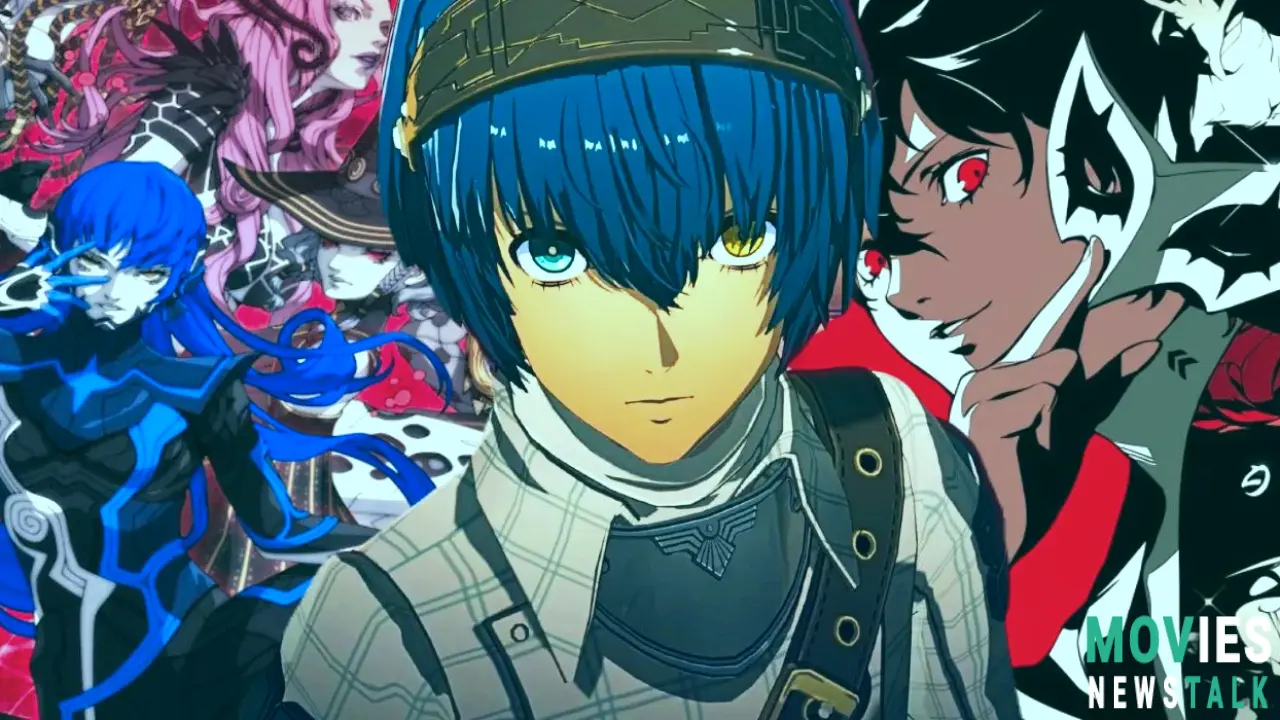Metaphor: ReFantazio – Why Atlus Needs to Ditch the Calendar System!
Metaphor: ReFantazio and the Problem with Time
Atlus's Metaphor: ReFantazio is a pretty cool game, but it got one major thing wrong. It’s got this calendar system which has long been a staple for theirShin Megami TenseiandPersonaseries. In these games it divides gameplay into days; each has unique weather, events and side activities! And here’s the catch: unlike other RPGs where time goes on in real-time; each day is split into two parts: a short afternoon, and another short night section, with players picking their two actions for every 24-hour cycle.
This system works brilliantly for other games – It really madePersonaandSMTunique! But this really does not apply for this one. And in fact, many recent productions have failed to do so effectively! We are talking strategy beyond the battles themselves. Those activities in-between? They’re important to success. But inMetaphor, it just feels weird and unnecessary, something we explore next!
Why the Calendar Worked for Persona (and Why it Fails in Metaphor)
Let’s be honest here; thePersonagames use this system perfectly; It makes perfect sense. The characters? Students who are always busy. The plot has loads of time-sensitive events that follow the regular school year; those exams you absolutely can't fail, creating time constraints; making things both memorable, as well as intensely challenging, especially later into the games, as additional options become available and need consideration.
You have limited options and flexibility. You got limited opportunities to get great marks and unlock cool rewards for doing very well, and this same calendar affects the importantSocial Links(orConfidants) relationships; which are important to build to get buffs in-battle; creating an ever-changing system with deep strategic options. Your daily activities and time management are constantly at odds against the overall deadline of beating those increasingly difficult dungeons! Not that difficult to do per-se; it just needs significant amounts of advanced planning which shows some pretty amazing design choices! And the timed deadlines and challenges around this calendar system could only happen through that thoughtful process and is just incredibly rewarding! This whole concept of using this system brilliantly captures the fleetingness of youth and that overall nostalgic tone is a masterclass in creative design decisions that were very fitting for those very games.
Shin Megami Tenseiis simpler! Time shifts constantly; but the overall effect on combat is exactly similar! The specific time of day and its position on a lunar cycle? This determines which enemies appear, their difficulty, and strategies that are important for successful negotiation or combat against those tougher, unpredictable enemy units and that clever system provides lots of incentive to take note of everything around this incredibly specific element. It truly shines and creates deep, complex decision-making which was entirely justified due to the inherent value of having such an intelligent and clever way of increasing gameplay.
ButMetaphoris utterly different. The overall effect does work similarly toPersona– it divides things by nights and days. However the differences highlighted are truly critical to recognize just how differentMetaphor’sexecution was. There are limited opportunities available. Those restrictions become apparent due to travel times alone; impacting options around dungeon exploration.You only have a certain number of actions daily! Why?! Because this design copies the limitations from other games. There’s minimal reasoning provided, almost none, regarding limiting things. Your hero is an adult without an actual job, besides saving the world – that sounds way too limiting.
Why Metaphor’s Time System is Broken, Yet Possibly Fixable
It is interesting how restrictive these actions become in the context of that otherwise broader reality in thisMetaphorgameplay. There aren’t any significant, time-limited plot developments within its various events; nothing forces any constraints onto the main hero; nothing pushes for a tighter, shorter experience in terms of gameplay, unlike other games, showing how that kind of restrictive gameplay becomes unnecessary.
That whole day-night division isn’t really necessary at all. The design simply carries these same ideas over fromPersona, without generating any added benefit from it! It creates a somewhat artificial constraint.Only the shops which may offer occasional sales under particular weather, might incentivize this kind of daily cycle, this is however nowhere near as compelling compared to its iterations found within other similar Atlus games. It is rather easy to solve; an idea proposed here for implementation by the developers, an idea that could result in extremely exciting outcomes:
How Atlus Could Make Their Next Game Better
Atlus's next RPG needs some work – those time and date systems don’t really work unless implemented thoughtfully! This would greatly add and boost immersive qualities; a concept achieved recently inDragon’s Dogma 2, and a much easier idea; an open-world model completely removing the entire day-night constraint entirely – could become exceptionally engaging for viewers, yet could remove elements which those Atlus fans love!
It would work! These new games could cleverly restrict events (andSocial Links) using the main story, eliminating that somewhat artificial plot device. There’s also a clever option; it could be possible to keep using this calendar while actually emphasizing more narrative importance by tying those elements related to plot developments with time constraints in order to justify the imposed limitations, which would work brilliantly given previous implementations in prior productions which really generated many deeply complex and uniquely strategic options which generated plenty of exciting developments through many diverse plotlines inPersona.
Conclusion: Innovation is Needed (and Possible!)
It’s clear here whyMetaphor: ReFantaziofailed to truly capture the unique quality of life improvement through smart use of calendar features. However, that is completely understandable, particularly because it attempted to copy without understanding and reworking concepts which only worked brilliantly in different situations.
Atlus might need some creative changes in its next RPG, adding better justification of implementing its day-night-based time management mechanics within its gameplay systems. Or simply ditching this entirely! This might make for a way better, less restricted gaming experience.

